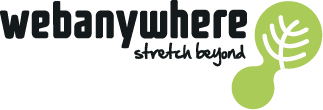10 Benefits of LMS for Compliance Training

Compliance training is more than a checkbox for businesses; it’s a critical step in ensuring that teams are up-to-date with legal standards and company ethics. Traditionally, this training has been a mix of in-person sessions and hefty manuals, often resulting in a less-than-ideal uptake of crucial information.
The effectiveness of training, especially in compliance, is critical. It’s not enough to provide the information; it must be absorbed and applied. This is where traditional methods often fall short. They need more engagement and practical relevance than modern workforces require for genuine understanding and implementation.
Enter Learning Management Systems (LMS). These digital platforms are reshaping the landscape of compliance training, making it more interactive, accessible, and tailored to diverse learning needs. In this article, we’ll explore the top 10 benefits of LMS for compliance training, offering insight into improving your organization’s training.
1: Centralization of Training Resources
LMS are like the Swiss Army knife of training tools, especially regarding compliance. They bring everything – videos, documents, quizzes, you name it – into one central hub. This means no more hunting through emails or folders for suitable material. It’s all there, neatly organized in one place.
Learning management systems also break down geographical barriers. Whether your team is in the office, working remotely, or spread across the globe, they have the same easy access to training materials. This uniform access is a game-changer, ensuring everyone is on the same page, regardless of location.
2: Enhanced Tracking and Monitoring
With an LMS, you’re not just throwing information out and hoping it sticks. These systems allow you to track employee progress in real time. You can see who’s completed what training, how they scored on quizzes, and pinpoint areas where they might need extra help. It’s like having a bird’s-eye view of your entire team’s learning journey.
And when it comes to compliance, staying on top of things isn’t just good practice—it’s often the law. LMS systems simplify this with automated compliance reporting. They keep tabs on who’s up-to-date with their training and generate reports crucial for regulatory adherence. Knowing your compliance records are always audit-ready is one less headache.
3: Customizable Learning Experiences
One size rarely fits all, especially in training. An LMS allows you to tailor your compliance training to match your organization’s unique needs and culture. This customization means you can focus on what’s most relevant for your team, ensuring they get the exact information they need in a way that resonates with them.
People also learn differently. Some prefer reading, others learn best through videos or interactive sessions. An LMS caters to this diversity by supporting various learning styles and modalities. This flexibility makes learning more effective and enjoyable, leading to better engagement and retention.
4: Improved Engagement and Retention
Learning Management Systems revolutionize compliance training by integrating interactive training modules and multimedia. This approach moves away from traditional, text-heavy methods, embracing more dynamic formats like videos, interactive scenarios, and real-world simulations. Such engaging content maintains the learner’s interest and aids in better comprehension and retention of complex compliance information.
LMS platforms also often employ gamification strategies to enhance engagement further. Gamification transforms learning into an interactive experience by incorporating elements like quizzes and leaderboards. This method makes the learning process more enjoyable and reinforces information retention, ensuring that employees retain vital compliance knowledge effectively.
5: Increased Regulatory Compliance
Staying on top of changing regulations can feel like hitting a moving target, but it’s much more manageable with an LMS. As rules and standards evolve, you can swiftly update your training materials in the LMS. This way, your team always has access to the most current information, helping them stay compliant and informed.
Consistency is key to compliance. A LMS ensures that every member of your team, no matter where they are, gets the same training. This uniform approach ensures everyone understands and adheres to the same compliance standards, creating a level playing field for all.
6: Scalability and Flexibility
One of the standout features of an LMS is its scalability. Whether you’re training a team of ten or an enterprise of thousands, an LMS can effortlessly adjust to fit. This scalability means you don’t have to worry about outgrowing your training program or finding new solutions as your company expands. It’s a system that grows with you.
Flexibility in scheduling is another significant advantage of an LMS. Employees can access training when it fits their schedules, whether during a quiet morning or after hours. This flexibility is particularly beneficial for teams across time zones or individuals juggling various responsibilities. It ensures that everyone can learn at their own pace without disrupting their workflow.
7: Cost-Effective Training Solution
Switching to an LMS can lead to significant cost savings compared to traditional training methods. Think about the expenses typically associated with in-person training: venue rentals, printed materials, travel costs, and the time employees are away from their work. An LMS cuts these costs dramatically, as training is conducted online and can be accessed from anywhere.
In the long run, the financial benefits of using an LMS are substantial. Not only does it reduce upfront training costs, but it also minimizes the need for repeated sessions due to its more effective training approach. Plus, the time saved in training administration and the increased efficiency in learning processes add to considerable financial savings over time.
8: Efficient Administration and Management
A LMS brings efficiency to training management like never before. It streamlines the entire process, from creating and updating courses to tracking employee progress. This centralized system means less time spent coordinating training schedules, managing multiple platforms, or tracking down resources. Everything you need is in one place, accessible with just a few clicks.
LMS also reduce the administrative burden. With automation features for tasks like enrollment, reminders, and reporting, it frees up valuable time for your HR and training teams.
9: Enhanced Data Security & Privacy
In an age where data security is paramount, a LMS offers peace of mind by securely handling and storing sensitive training records. With robust encryption and secure servers, an LMS ensures that confidential employee data and proprietary training materials are protected from unauthorized access.
A LMS helps organizations stay compliant with data protection and privacy laws. It manages user data by legal standards, ensuring that personal and sensitive information is handled responsibly. This is especially crucial for global companies needing to navigate various regions.
10: Accessibility and Inclusivity
One of the great strengths of a LMS is its ability to ensure remote access to training materials. In today’s increasingly digital and mobile workforce, this feature is invaluable. Employees working from home, in the office, or on the go can easily log in and access the training they need.
A LMS also caters to diverse learning needs and preferences, making it an inclusive tool for workforce development. It supports various formats like videos, text, and interactive content, accommodating different learning styles.
Transforming Compliance Training with LMS
LMS are revolutionizing compliance training. From centralizing training resources and enhancing data security to offering customizable and engaging learning experiences, LMS platforms address many of the traditional challenges in compliance training. They provide scalable, cost-effective solutions that cater to diverse learning styles and administrative needs, all while ensuring regulatory compliance and data privacy.
For organizations looking to elevate their compliance training, adopting an LMS is more than a smart choice; it’s a strategic move towards future-proofing your training processes. It’s an investment in your team’s development and your company’s compliance posture.
Book a demo today and discover how Webanywhere’s custom Learning Management System can elevate your organization’s compliance training and development strategy to the next level.
